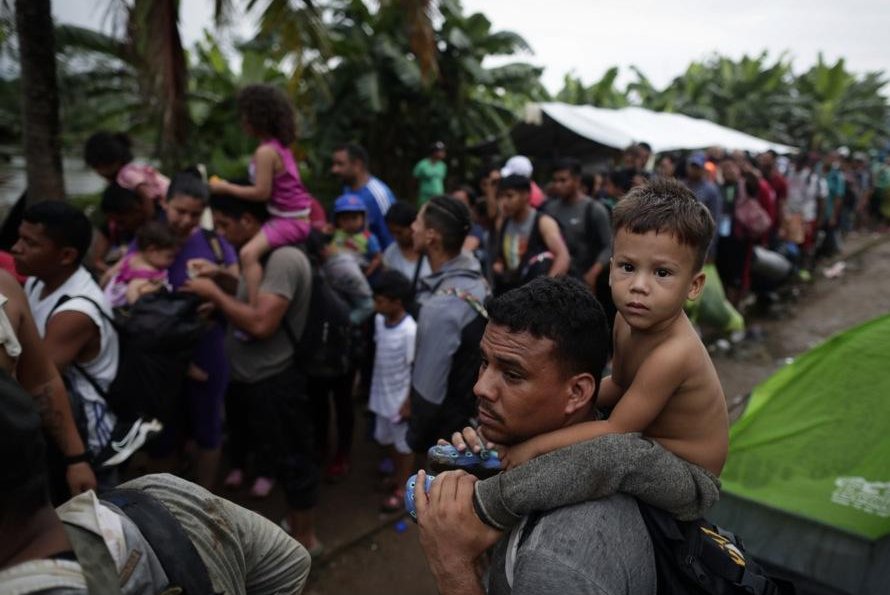Migrants line up to be transferred in canoes to the humanitarian shelters of Lajas Blancas, at the indigenous town of Bajo Chiquito, Panama, in September 2023. The U.N. rights office warned that the unprecedented number of migrants crossing the dense tropical jungle between Colombia and Panama known as the Darien Gap weree risking their lives and facing horrific human rights abuses. File Photo by Bienvenido Velasco/EPA
Sept. 3 (UPI) — Unauthorized migration through the Darien Gap jungle between Colombia and Panama has fallen by 97% between January and August 2025.
Moreover, more than 14,000 migrants have been returned from the United States and Mexico to transit countries such as Colombia, Panama and Costa Rica, according to a report by the ombudsman offices of those latter three countries.
Most are Venezuelans attempting to return home or resettle in the region, noted the report, prepared with support from the Office of the United Nations High Commissioner for Human rights.
In 2024, more than 260,000 people crossed the Darien northward, but this year the flow has nearly stopped. In June, only 10 migrants attempted the crossing, compared to thousands in previous months, according to the U.S. Department of Homeland Security.
Overall, Panama reported that just 2,937 people crossed so far in 2025, compared with 302,203 during all of 2024, a drop of nearly 99%.
“It’s time to go back. The American dream wasn’t like this,” one interviewee said in the report, which detailed the main reasons behind forced returns.
Forty-nine percent of migrants cited denial of entry to the United States, 46% pointed to changes in U.S. immigration policy, 34% lacked the money to continue, 27% had experienced violence in transit and 17% feared detention or deportation, with many reporting more than one cause.
The profile of returnees shows extreme vulnerability: 97% are Venezuelans, many traveling with large families, pregnant women, unaccompanied children and people with disabilities. In Panama, 55% said they could not afford the $280 boat fee to reach Colombia, leaving them stranded for weeks in remote coastal communities.
Violence continues to shape migration routes, with 86% of those who attempted to head north through the Darien reporting suffering or witnessing abuses, including kidnappings, extortion and robberies by organized crime in Mexico and Guatemala.
A 42-year-old Venezuelan woman summed up her ordeal: “Imagine being back in the same place I left years ago searching for a dream. Now I don’t know what to do.”
The report also found that 37% of returnees face critical economic needs, compared with 13% of those still moving north. The suspension of international humanitarian aid has worsened these gaps, forcing thousands to survive in precarious conditions and exposing them to exploitation, sexual violence and human trafficking.
“It doesn’t make sense. Nobody will believe us,” said one migrant who chose not to report the abuses, reflecting widespread distrust in authorities.
The ombudsman offices warned that so-called “reverse migration” largely amounts to forced returns, marked by human rights violations and the absence of safe regularization pathways.
They urged regional governments to coordinate a joint humanitarian response, with a special focus on unaccompanied children, women and people with disabilities.
